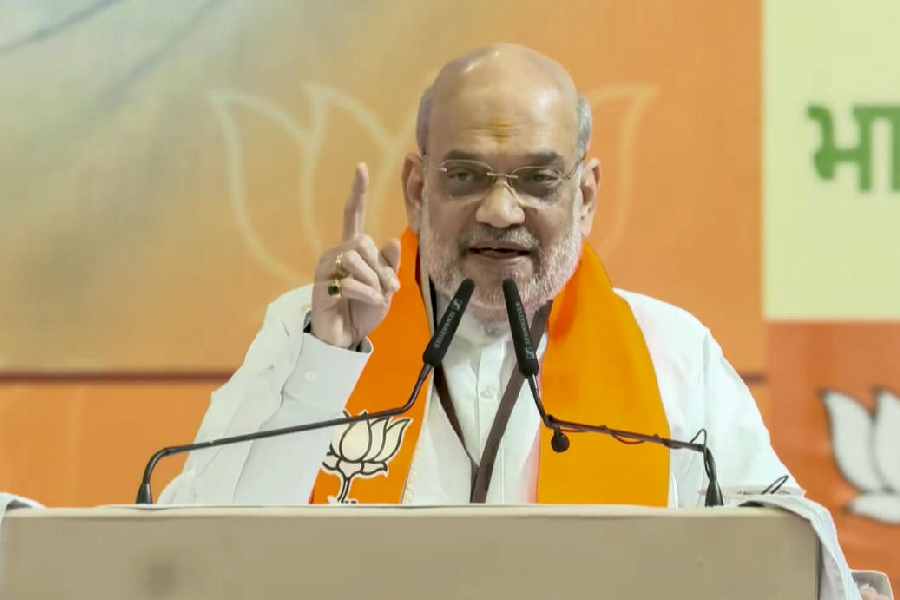The Editors Guild of India (EGI) has written a letter to Union home minister Amit Shah expressing concerns over the new criminal laws.
The Guild highlighted the misuse of the criminal laws against journalists as a tool for harassment and intimidation.
In its letter, the apex body representing senior editors in the country also expressed apprehension that the new laws would further expand the powers of law enforcement agencies and "emphasised the need for an additional layer of safeguard for journalists when criminal complaints are filed against them with reference to their journalistic work".
The Bharatiya Nyaya Sanhita (BNS), Bharatiya Nagarik Suraksha Sanhita (BNSS) and the Bharatiya Sakshya Adhiniyam (BSA) have replaced the British-era Indian Penal Code (IPC), Code of Criminal Procedure (CrPC) and the Indian Evidence Act, respectively.
"The reason we are specifically raising these is because we fear all these provisions can be potentially used against journalists, as has been the case in the past under the IPC as well as the CrPC. The guild urges a thorough review of the criminal laws from this perspective. We suggest substantive consultation with organisations like ours in this regard," the letter said.
"We also are of the opinion that given the precedent in the manner in which criminal laws have been used as tools of harassment and intimidation against journalists, with a potential of setting a chilling effect, there is a legitimate case for a journalistic exception in the registration of FIRs," the letter added.
Shield sought
Pointing out that the process is the punishment, the Guild said there was a need for protecting members of the media from frivolous criminal complaints and indiscriminate state or police action in relation to acts done in the course of their duty.
"And we reiterate, this has been the case under governments across party lines. Therefore we strongly feel that before a criminal complaint is registered as an FIR against a journalist, with a reference to a journalistic work done by them, there be an additional and thorough layer of review. It is our strong belief that there is a need for a deep consultation and formulation of some set of guidelines for regulating prosecutions against members of the press/media for actions in the course of their duty,” the letter said.
The guild also suggested a mechanism whereby any such complaint against a member of the media is reviewed by a high-ranking police officer and is brought to the knowledge of the Press Council of India for an opinion on whether further investigation of the complaint/ information would be an unreasonable burden on the freedom of profession and freedom of expression of the alleged offender as a member of the media.
“We feel some such set of guidelines can go a long way in preventing the misuse of these laws against journalistic activities,” the letter said, adding freedom of the media is a facet of the fundamental right of free speech and expression which is protected under Article 19(1)(a) of the Constitution of India and that the members of the media are the "eyes and ears of the citizenry".
"A free press is the hallmark of a democracy and deserves to be shielded from frivolous prosecution for acts done in the course of their duty," the letter said.
Guild president Anant Nath, general secretary Ruben Banerjee and treasurer K. Ve Prasad also sought an audience with Shah on the issue, saying “the provisions of the new criminal laws can pose a grave danger to freedom of press”.
'Cage' condemned
The Guild condemned the new restrictions on journalists’ access within Parliament. “We reiterate our earlier demand to the Speaker, Lok Sabha, and Chairman, Rajya Sabha, urging removal of access restrictions on journalists from reporting on House proceedings,” the Guild said in a post on X on Tuesday.
Reporters, news photographers and TV camera crew on Monday protested inside Parliament premises against the increased restrictions on the media. Rahul Gandhi, leader of the Opposition in the Lok Sabha, had raised the issue in the House during the budget discussion, urging Speaker Om Birla to "free" the journalists from their "pinjra" (cage).











